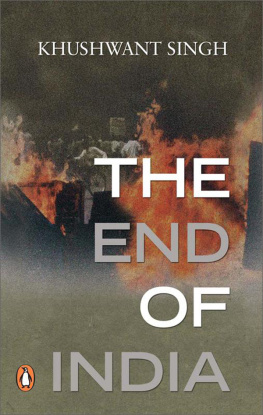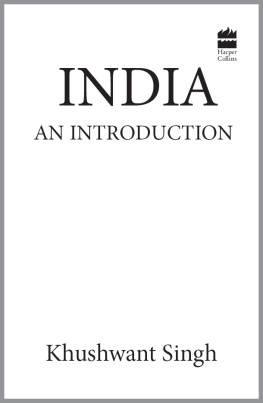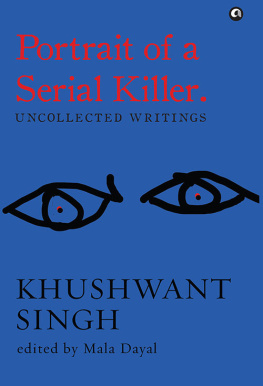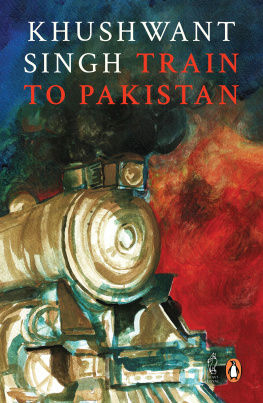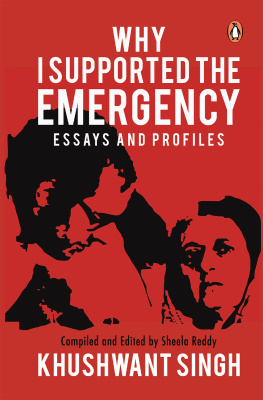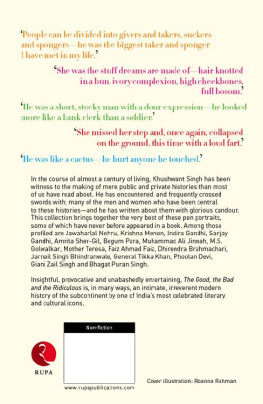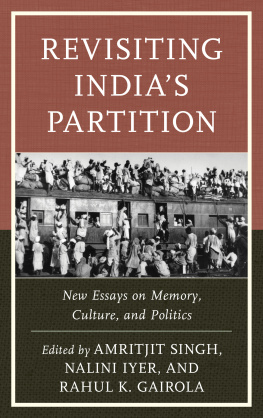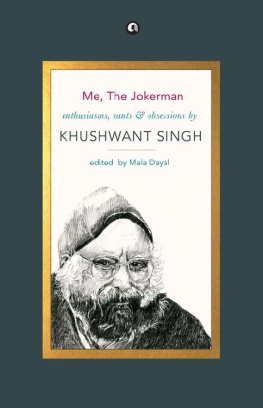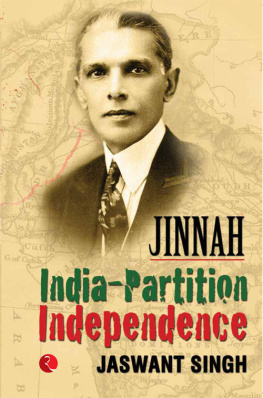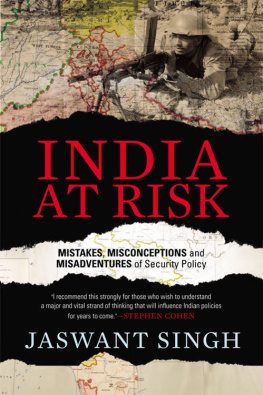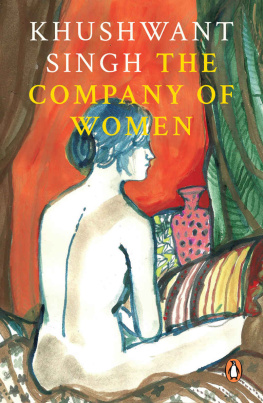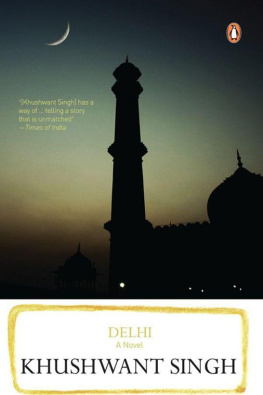'I thought the nation was coming to an end,'
wrote Khushwant Singh, looking back on the violence of Partition that he witnessed over half a century ago. He believed then, and for yearsafterwards, that he had seen the worst that India could do to herself.Over the last few years, however, he has had reason to feel that theworst, perhaps, is still to come. In this fierce, uncompromising book,he shows us what few of us wish to see: why it is entirely likely thatIndia will come undone in the foreseeable future.
Analysing the communal violence in Gujarat in 2002, the burningof Graham Staines and his children, the anti-Sikh riots of 1984,and targeted killings by terrorists in different parts of the country,Khushwant Singh forces us to confront the extreme corruption ofreligion that has made us among the most brutal people on earth.We have always been too easily tolerant of extremist ideologies,but the rise of religious fundamentalism among the Hindus threatensour democracy and everything else that we take for granted. Withsections of the ruling coalition openly supporting the divisive andretrograde agenda of the fundamentalists, it is the very idea of Indiathat is at stake. 'Unless a miracle saves us,' Khushwant Singh writes,'the country will break up. It will not be Pakistan or any other foreignpower that will destroy us; we will commit hara-kiri.'
A brave and passionate book, The End of India is a wake-upcall for every Indian citizen concerned about his or herown future, if not the nation's.
Cover photograph by Shailesh Raval/India Today
PENGUIN BOOKS
THE END OF INDIA
Khushwant Singh was born in 1915 in Hadali, Punjab. He was educated at Government College, Lahore and at Kings College and the Inner Temple in London. He practised at the Lahore High Court for several years before joining the Indian Ministry of External Affairs in 1947. He was sent on diplomatic postings to Canada and London and later went to Paris with UNESCO. He began a distinguished career as a journalist with All India Radio in 1951. Since then he has been founder-editor of Yojana, and editor of The Illustrated Weekly of India, National Herald and Hindustan Times. Today he is Indias best-known columnist and journalist.
Khushwant Singh has also had an extremely successful career as a writer. Among his published works are the classic two-volume History of the Sikhs, several works of fiction including the novels Train to Pakistan (winner of the Grove Press Award for the best work of fiction in 1954), I Shall Not Hear the Nightingale, Delhi and The Company of Women and a number of translated works and non-fiction books on Delhi, nature and current affairs.
Khushwant Singh was a member of Parliament from 1980 to 1986. Among other honours, he was awarded the Padma Bhushan in 1974 by the President of India (he returned the decoration in 1984 in protest against the Union Governments siege of the Golden Temple, Amritsar). His autobiography, Truth, Love and a Little Malice, was published in 2002.
THE END OF INDIA
Khushwant Singh

PENGUIN BOOKS
Published by the Penguin Group
Penguin Books India Pvt. Ltd, 11 Community Centre, Panchsheel Park, New Delhi 110 017, India
Penguin Group (USA) Inc., 375 Hudson Street, New York, New York 10014, USA
Penguin Group (Canada), 90 Eglinton Avenue East, Suite 700, Toronto, Ontario, M4P 2Y3, Canada (a division of Pearson Penguin Canada Inc.)
Penguin Books Ltd, 80 Strand, London WC2R 0RL, England
Penguin Ireland, 25 St Stephens Green, Dublin 2, Ireland (a division of Penguin Books Ltd)
Penguin Group (Australia), 250 Camberwell Road, Camberwell, Victoria 3124, Australia (a division of Pearson Australia Group Pty Ltd)
Penguin Group (NZ), 67 Apollo Drive, Rosedale, North Shore 0632, New Zealand (a division of Pearson New Zealand Ltd)
Penguin Group (South Africa) (Pty) Ltd, 24 Sturdee Avenue, Rosebank, Johannesburg 2196, South Africa
Penguin Books Ltd, Registered Offices: 80 Strand, London WC2R 0RL, England
First published by Penguin Books India 2003
Copyright Khushwant Singh 2003
Some of the materials used in the essays first appeared in the Illustrated Weekly of India and in the Hindustan Times.
All rights reserved
ISBN: 978-01-4302-994-6
This Digital Edition published 2011. e-ISBN: 978-81-8475-056-0
Digital conversion prepared by DK Digital Media, India.
This e-book is sold subject to the condition that it shall not, by way of trade or otherwise, be lent, resold, hired out, or otherwise circulated without the publishers prior written consent in any form of binding or cover other than that in which it is published and without a similar condition including this condition being imposed on the subsequent purchaser and without limiting the rights under copyright reserved above, no part of this publication may be reproduced, stored in or introduced into a retrieval system, or transmitted in any form or by any means (electronic, mechanical, photocopying, recording or otherwise), without the prior written permission of both the copyright owner and the above-mentioned publisher of this e-book.
To all those who love India
INTRODUCTION
These are dark times for India. The carnage in Gujarat, Bapu Gandhis home state, in early 2002 and the subsequent landslide victory of Narendra Modi in the elections will spell disaster for our country. The fascist agenda of Hindu fanatics is unlike anything we have experienced in our modern history. After Partition I had thought we would never again experience a similar holocaust. I may be proved wrong. Far from becoming mahaan (great), India is going to the dogs, and unless a miracle saves us, the country will break up. It will not be Pakistan or any other foreign power that will destroy us; we will commit hara-kiri.
At the time India won its independence in 1947, most India-watchers did not foresee this danger. Their concern was the left. They predicted that within a few years communists would take over the country. Marxist pedagogues assured everyone who cared to listen to them that India was like a rotten apple hanging on the branch of a rootless tree that could fall with the slightest tremor of the earth. There were enormous disparities between the few very rich and privileged on the one side and the teeming millions of the impoverished, underprivileged and discriminated against on the other. It was only a matter of time before the peasants and workers would rise en masse and sweep the bourgeoisie into the sea.
There were good reasons to believe that this would be the shape of things to come. Between 1939 and 1945, the years of the Second World War, while Congress leaders were behind bars for not co-operating with the government, communists who supported the British and their allies against fascists were allowed to consolidate their strength. They came to dominate workers trade unions across the country; they set up kisan organizations committed to depriving landlords of excess land. In every university they had Marxist students unions; they had progressive writers unions, peoples theatre groups and bodies like Friends of the Soviet Union. They had infiltrated the army, navy and police. They were confident that no sooner the war ended and the British packed up to leave, they would take over the country.
All their calculations went awry because they had grossly misread the mood of the people. As soon as the war was over and Congress leaders set free, people condemned communists as collaborators of the hated British. Their new heroes were Netaji Subhash Chandra Bose and others of the now defunct Indian National Army which had fought on the side of the Japanese against the British. The communists had also underestimated the hold of Mahatma Gandhi on the Indian masses; the Mahatma had no compassion for Godless Marxists. Above all, it was Jawaharlal Nehru, Indias first prime minister, who took the wind out of the communists sails by making India a socialist country. The strength the communists had gathered withered away. I recall Kingsley Martin, editor of the left-wing
Next page
